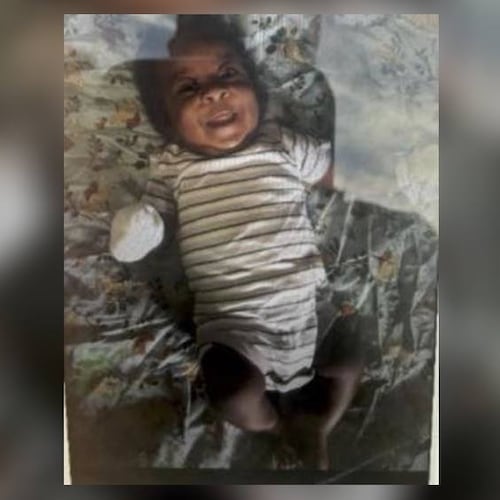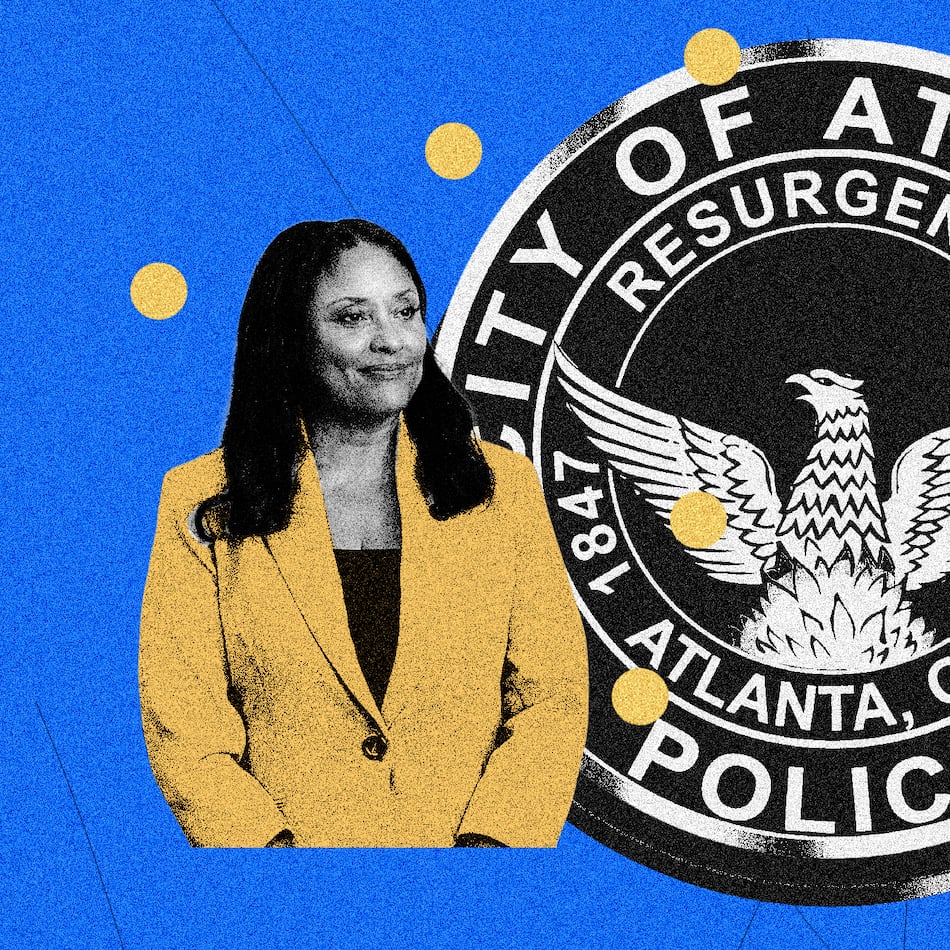After years of working as a prison chaplain, the Rev. Bruce Cook had stared into the eyes of more murderers and the mothers of murderers than he cared to remember.
If he’d learned anything, it was this: Death has a deceitful domino effect, touching the lives of those left behind in untold ways.
That's why, he said, members of Vinings United Methodist Church decided to take a resolution to the North Georgia Conference of the United Methodist Church and, in June 1989, he helped found the Crime Victims Advocacy Council.
Cook, 64, wanted to build an "inn for healing." And he needed to do it not just for the wounded but for himself.
For years, Cook walked around like a closed fist, unwilling to deal with the brutal murder of his stepbrother in 1977.
When he finally opened up, Cook said, “It was like someone put a needle in my stomach and drew all the poison and anger and hatred out.”
In its 21 years, CVAC has helped crime victims not only cope with the desolate feelings left by the loss but navigate the court and prison system. That includes sponsoring two support groups; assisting with victim compensation claims; and initiating, tracking and supporting changes in the law that will benefit crime victims and their families.
In the emotional landscape that violent crimes create, Cook said victims often feel overwhelmed and isolated, unable to come to terms with the loss of a loved one.
In metro Atlanta, the need is great. Since CVAC’s birth, Cook has held more than 500 support groups, counseled thousands more people and recorded the names of more than 3,500 murder victims.
Some of them -- Judge Rowland Barnes and Johnny and Fannie Mae Tubner -- you will remember because their stories made headlines. Others, like Marie Richards, you will hear about here most likely for the first time.
Recently Richards' sister, the Tubners' niece and Barnes’ widow sat down to share their stories. They wanted us to know what the numbers never tell: who the victims were and what we all lost.
They say that CVAC provided the protective cocoon that helped them push past the grief and rebuild their lives.
These are their stories:
Kellie Wiggins, 39, of Franklin
Kellie Wiggins dropped the telephone and fell to her knees.
For what seemed like days, she had been trying to find out what had happened to her sister, Marie, and now she had her answer.
As she lay screaming and pounding the kitchen floor, she knew she would never see Marie alive again.
“There are no words to describe that moment,” Wiggins said recently. “It was just awful.”
Marie Richards, 36, was dead, shot in the back and head and left in a vacant Douglasville lot along with her friend, Billy Joe Kilgore. They were murdered May 21, 2004.
Hours later, Nicholas Jason Bryant, whom Kilgore had hired to do odd jobs at his home, was arrested and charged with two counts of murder and armed robbery.
On Dec. 13, 2007, Bryant was convicted and later sentenced to die for his crimes.
Wiggins could finally tell the jury who Marie was and the impact her murder had on her family.
It infuriated them to know Marie had been left on the side of a road like a piece of trash. She deserved better. She was smart and strong and sincere.
“She was always so positive and absolutely hilarious,” Wiggins recalled.
She laughed and cried, remembering one of the last images she had of Marie with her mutt Little Girl, strapped inside a red Camaro, windows rolled down and disco music piercing the hot air.
“I miss her,” she said.
Wiggins remembered Marie standing with her at the altar on her wedding day in 1996. It meant a lot that she could tell the court that and more in the final days of the murder trial.
“I felt like I was standing for her, and I knew she would be affirming what I was doing,” she said.
Angela Sears, 42, of Morrow
Uncle Johnny and Fannie Mae Tubner died together.
Had it been any other way, Angela Sears might still be searching for peace.
“They loved one another so much,” said Sears. “One would not have been able to live without the other.”
Sears got an intimate look at that love after moving in with the elderly couple in the summer of 1999 shortly after losing a cousin and aunt to breast cancer and her mother to a heart attack, all within the same week.
“I thought about committing suicide,” said Sears.
When she shared her feelings with “my Uncle Johnny, he said, ‘No, baby, that’s not the answer. God knew what he was doing. God took [your mother] and sent you in her place.’ ”
So began some of the happiest days of Sears’ life.
“We’d have the best time laughing,” she remembered. “Sometimes when I’d wake up in the morning, they’d be standing in the door looking at me, and the fun would start all over again.”
The fun abruptly ended, though, when Sears' father nearly died during heart surgery. She struggled with whether to take time from her new job and return to Boston to care for him.
“You get one dad,” Uncle Johnny told her. “You get many jobs.”
They celebrated Christmas early, and on Dec. 7, 1999, Sears headed to Boston.
“That was the last time I saw them alive,” she said.
On Jan. 24, 2000, Johnny Tubner, 71, and his wife, Fannie Mae Williams Tubner, 63, were found bound, gagged and beaten to death in their Ellenwood home.
The Tubners' 15-year-old granddaughter Deandrea Carter, her boyfriend Richard Sealey and two other accomplices, Wajaka Battiste and Gregory Fahie, were charged in what became known as the ax murders.
Sealey was convicted and is now on death row. Carter, Battiste and Fahie, who pleaded to lesser charges and testified against Sealey, each served 10 years and were paroled recently. Prosecutors said Sealey targeted the couple in search of a large stash of money, but Sealey and the others made off with a wallet and a bag with jewelry containing fake stones.
Sears, now secretary of CVAC's board, has gone on with her life.
"You either move on and learn from it or you stay stuck," she said.
Sears says she's forgiven her aunt and uncle's killers and prays Battiste, Fahie and her cousin will turn their lives around and find their own happiness.
Even if she were bitter, she said, it wouldn't bring Uncle Johnny and Fannie Mae back.
Her next step? "I can only ask God what’s my purpose," she said.
Claudia Barnes of Fayette County
Had things turned out differently, Claudia and Rowland Barnes would be somewhere on Route 66 laughing and enjoying each other's company.
As his retirement approached, they had talked of little else.
"We wanted to travel," she said.
But before the Superior Court judge could reach that blessed day, he was gunned down while presiding over the rape trial of Brian Nichols.
It was March 11, 2005.
More than five years later, Claudia Barnes can't help but think about what could've been, but mostly, she remembers the life they shared; the man she loved.
“He never met a stranger,” she said.
Indeed much of his life contradicted his shy veneer. He modeled suits and sold Costco knives to help pay his way through college. And when she married him in 1996 and inherited an 11-year-old son, he was active in the PTA, where he often shared recipes with mothers.
“I used to kid him about having a feminine side,” Barnes recalled.
They loved teasing each other as much as they loved being together, being in love. When they were together, he nearly sat in her lap, staring at her, holding her hand.
Not a day went by without the judge telling his bride he loved her. Those were his last words to her the day Nichols overpowered that sheriff’s deputy, took her gun and killed Barnes, a court reporter and another deputy.
In many ways, their love explains why Claudia Barnes could bear losing him the way she did. He was good to her. She was good to him.
Besides that, she said, her faith in God gave her permission to move forward.
“God makes no mistake,” said Barnes. “We don’t know why, but there is a reason.”
Whatever the reason, Barnes said Rowland’s death has fueled her drive to help others who’ve suffered a similar loss.
In addition to sitting on CVAC’s board of directors, Barnes has worked tirelessly, lobbying lawmakers. That includes the Fulton County Commission, which recently approved plans to upgrade security at the courthouse.
“If losing his life could save just one life, he would’ve volunteered for that,” said Barnes. “That’s why it wasn’t in vain.”
For more information
To reach the Crime Victims Advocacy Council, call 770-333-9254 or go to www.cvaconline.org. Support groups meet at 7:30 p.m. Tuesdays at Vinings United Methodist Church; and 6:30 p.m. Wednesdays at First Baptist Church, Decatur.
The Rev. Bruce Cook's book, "Redeeming the Wounded: A Prison Chaplain's Journey Into Crime Victims Advocacy," is available at Amazon.com and other online booksellers.
About the Author
The Latest
Featured


